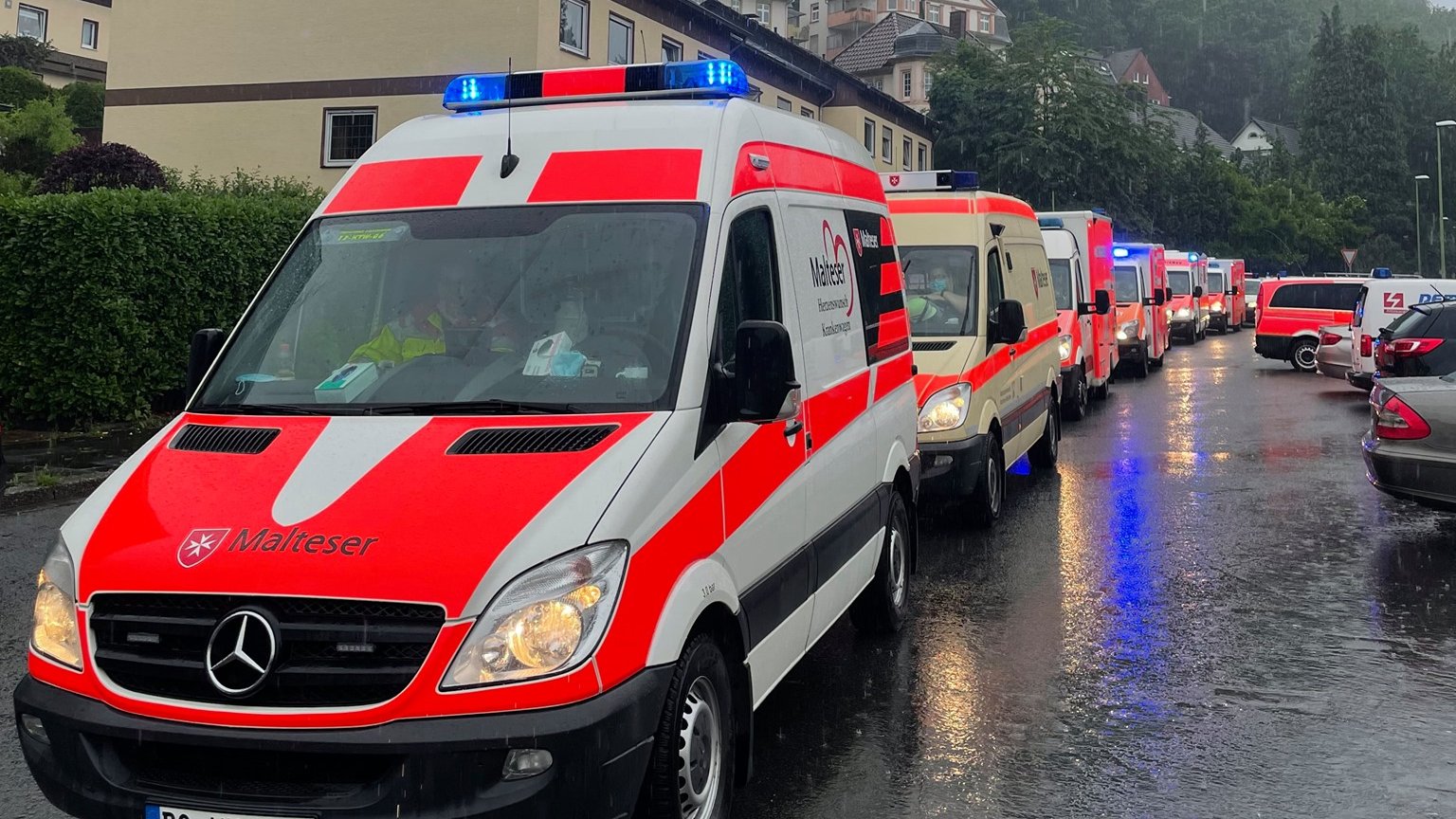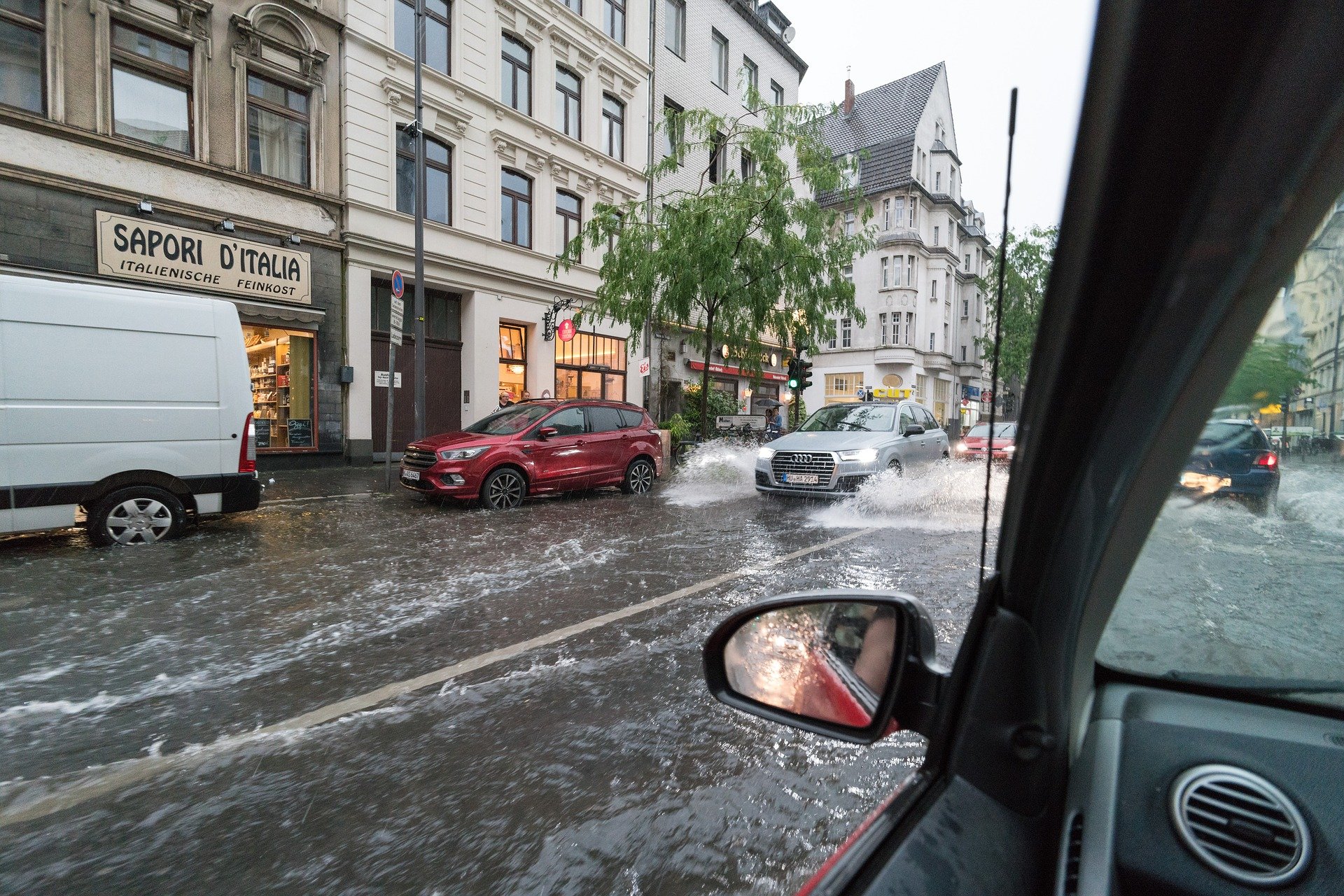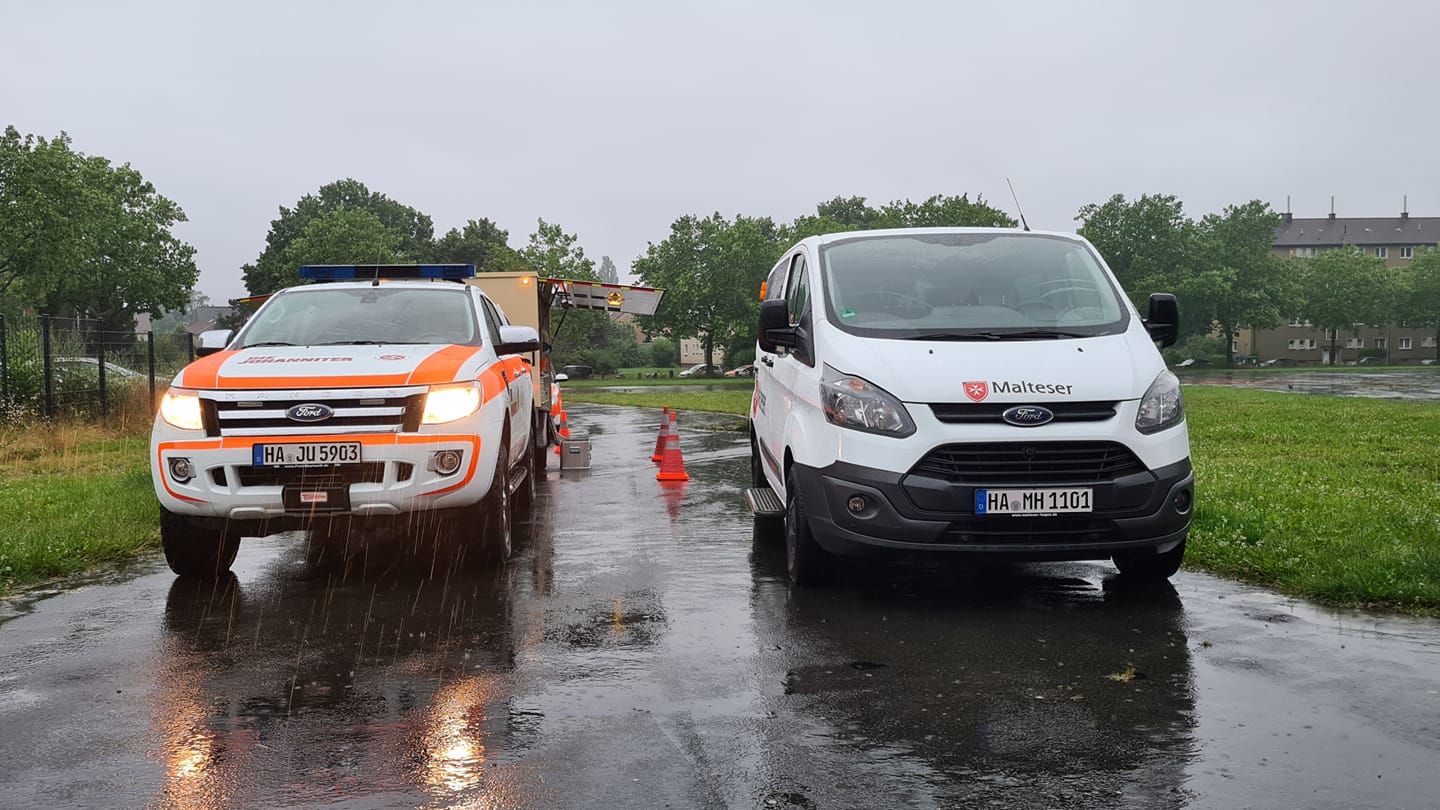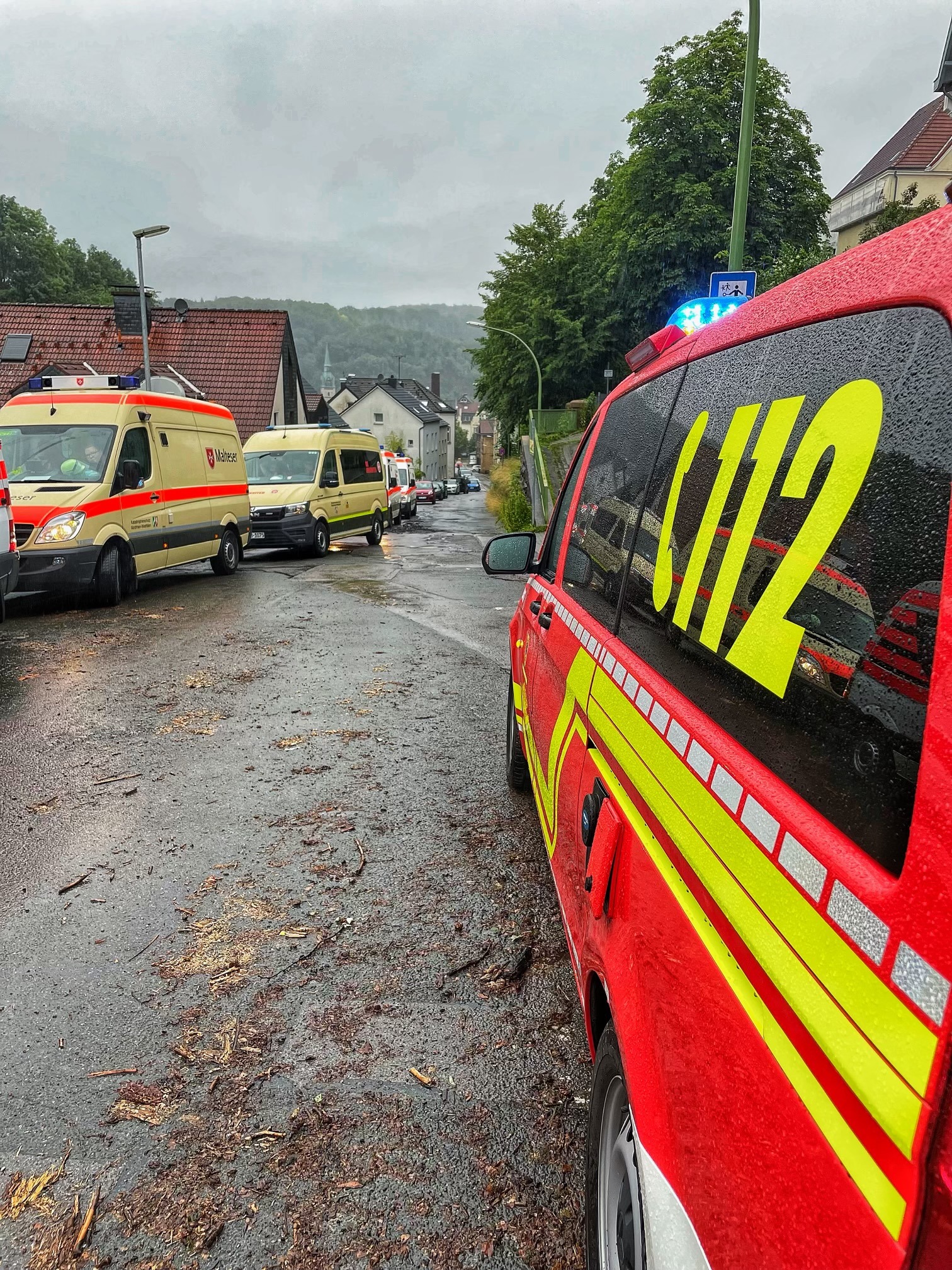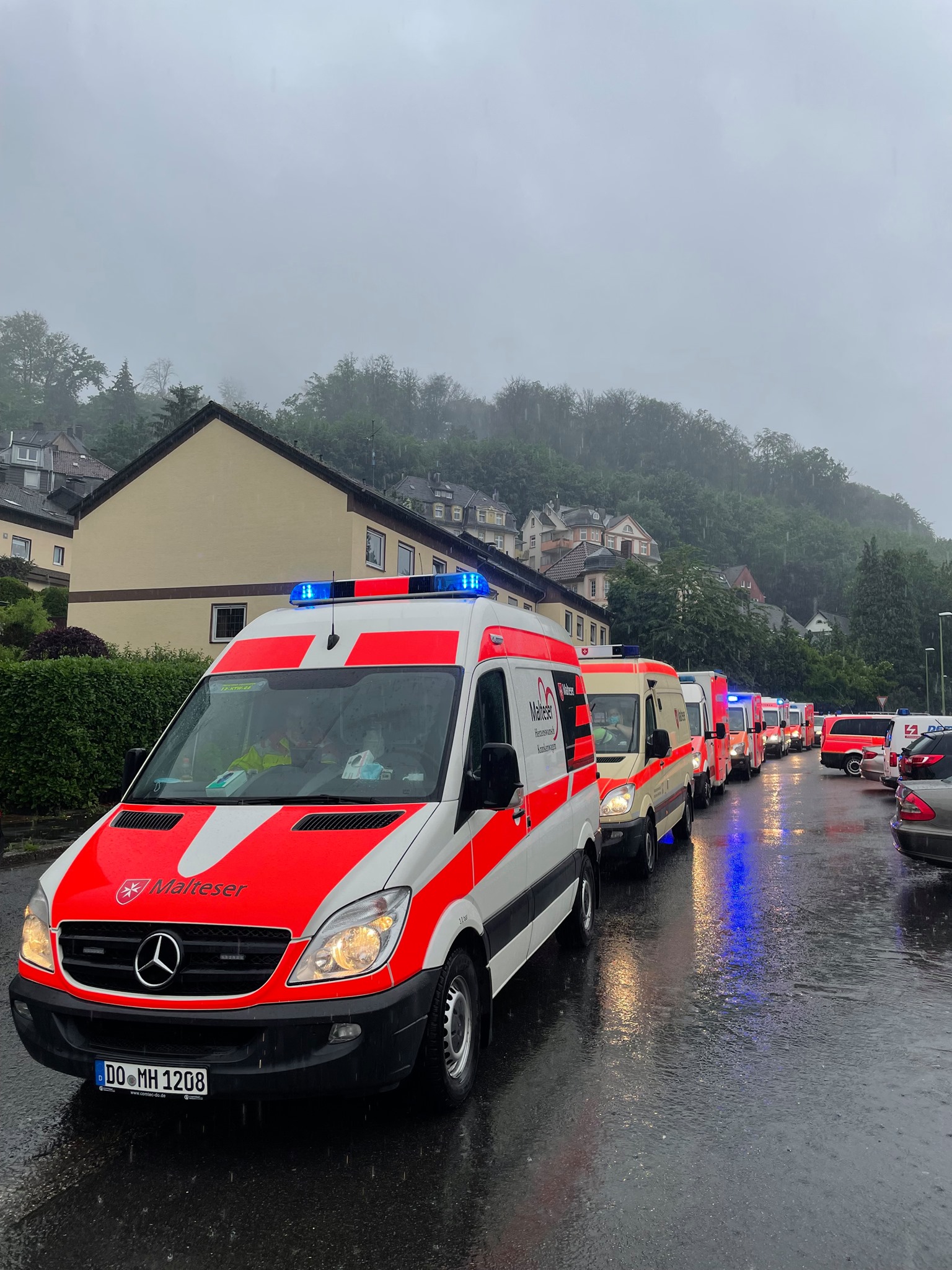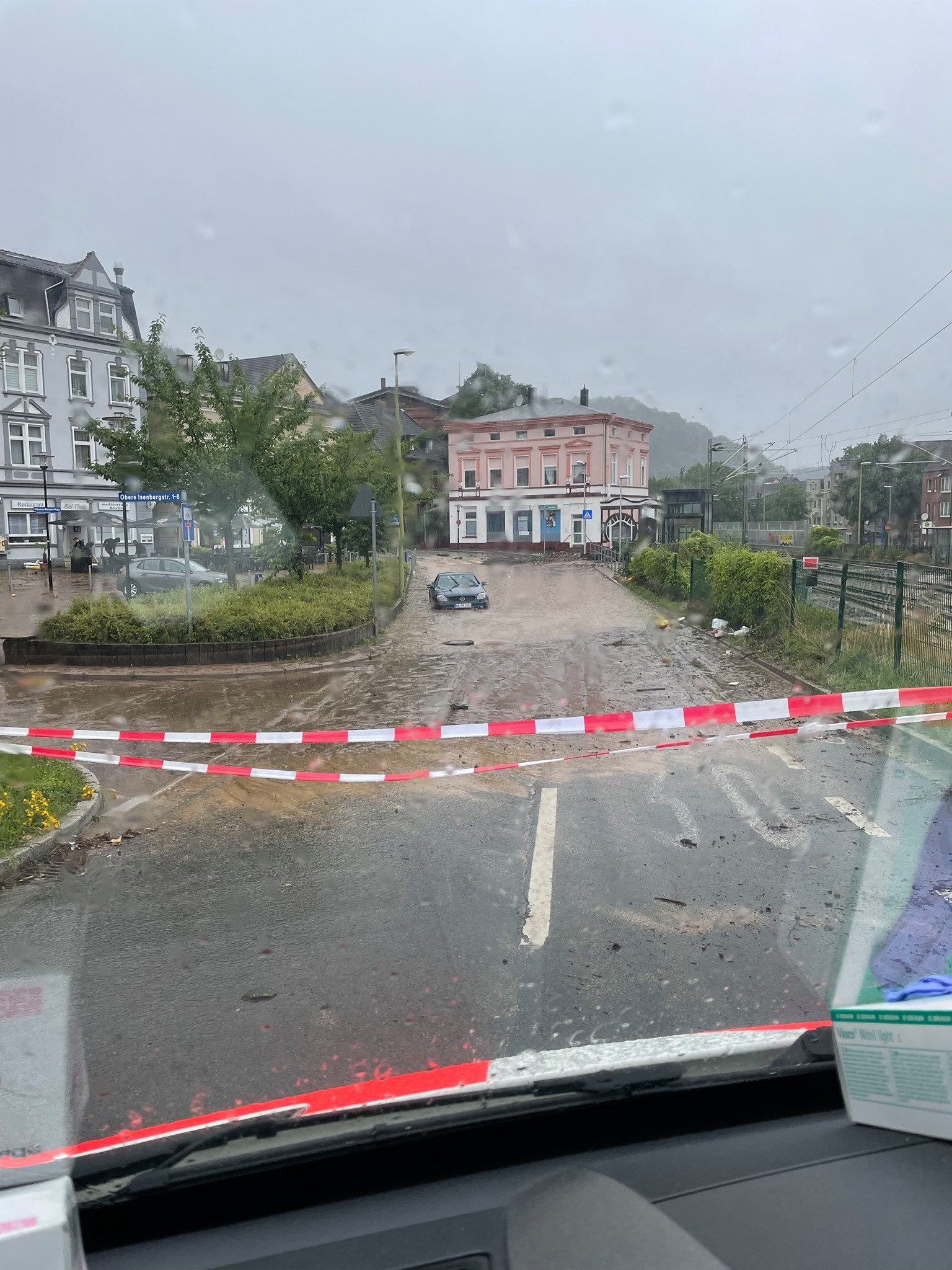“It’s like a war scenario: there’s no water, no electricity, no internet connection and many roads are impassable.” These are the dramatic eye-witness accounts from the North Rhine-Westphalia and Rhineland-Palatinate regions, devastated by the incessant rains that have fallen in the last 48 hours on north-west Germany.
The intense rainfall has caused catastrophic floods and rivers to overflow. At the moment the death-toll is 100 and dozens are still missing. Numerous homes have been destroyed and hundreds of people have had to be evacuated.
Both Malteser Hilfsdienst (Order of Malta’s relief corps in Germany) and Malteser International (Order of Malta’s international relief agency) immediately mobilised a large number of volunteers. “The situation in Rhineland-Palatinate and North Rhine-Westphalia is very serious and still evolving. The lives of people affected by the floods, as well as the rescuers and firefighters, are in danger, ” said the Georg Khevenhüller, Malteser Hilfsdienst’s president. “We’re also thinking about the victims’ relatives.”
In addition to the actual rescue operations, Malteser provides food and assistance to firefighters, to civil protection officers, divers and police and also organizes rest areas. Moreover, chaplains and specifically-trained volunteers provide psychosocial support for the emergency services, since many rescuers are facing this kind of disaster for the first time.
In Hagen, the Malteser helped evacuate ventilated patients, and in Solingen eleven elderly people were transported to the Order of Malta’s St. Antonius senior-care facility. “Of course, we responded quickly to our colleagues’ request for help. In an emergency situation like this, it’s important to offer immediate help, also with short-term solutions,” says Bianca Janssen, head of nursing at St. Antonius.
Viewing the situation, President Khevenhüller once again proposed that more Order of Malta volunteers be integrated into civil protection: “The Covid-19 pandemic and the floods with their terrible consequences have made us realize that we need to focus more on prevention. Every contribution is important and useful.”








